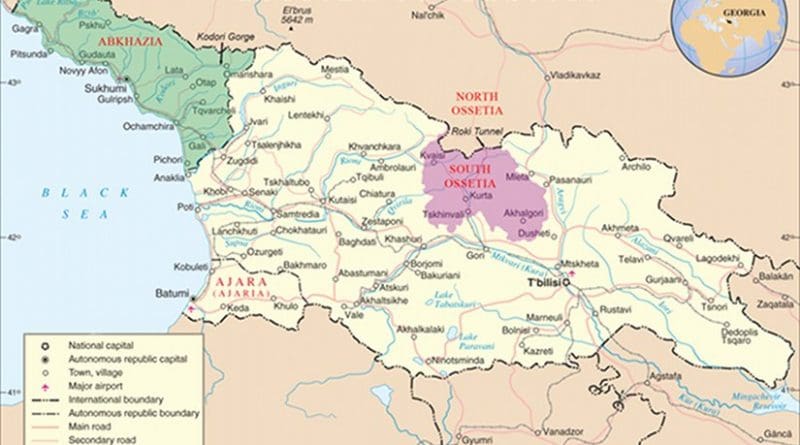Are More Border Changes Ahead In Eurasia?
By Paul Goble
Since 1991, the post-Soviet governments and the international community have been adamant against any change in the borders in Eurasia, and many expressed concerns that one of the results of Moscow’s decision to recognize Abkhazia and South Ossetia would be to spark demands for border changes or even the formation of new independent states.
There have been demands by various groups across the post-Soviet space since that time, but this week featured three such calls, an indication ever more people may think they now have a chance to achieve such outcomes and thus a challenge to the supporters of current arrangements even if nothing comes of their appeals.
The first of these calls came from the Mezhdurechensk miners, at least some of whom are calling for the creation of a West Siberian Republic as a way of forcing out the current powers that be at a minimum and possibly leading to the creation of their own independent state, something that would cut the Russian Federation in half (imc-siberia.org/ru/node/4676).
The second comes from a group calling itself “Vally Karjala” or “Free Karelia, which is using both print media and the Internet to push the idea that Karelia should be allowed to become a free and independent state, the successor to the Ukhta Republic of 1920 whose 90th anniversary the group is celebrating (mariuver.wordpress.com/2010/05/19/kareliju-svobodnoi/#more-17289).
And the third involves speculation that, in the words of the New Region agency, “as a result of secret agreements of Dmitry Medvedev and Viktor Yanukovich, the unrecognized Transdniestr Republic can be folded into Ukraine, and Moldova can thereby return to the zone of Russian influence (www.nr2.ru/283874.html).
(Indeed, according to Oleh Bilorus, Ukraine’s first ambassador to the US and currently chairman of the Ukrainian parliament’s foreign relations committee, this is the direction the Kyiv appears to be moving in even though the consequences of such an action would be enormous not only in Moldova, which might disappear, but throughout the Balkans.)
None of these calls or speculations is likely to have a result, just as none of the efforts of various ethnic communities in the North Caucasus to redraw the map there is. But what is striking is that more and more groups are prepared to identify such changes as part of their agenda, an indication the taboo that Vladimir Putin worked so hard to impose is decaying.
And that in turn means that more groups, both those like the Ingermanlanders in the Northwest and ethnic communities across the Russian Federation and predominantly ethnic Russian regions are now going to be discussing such possibilities, discussions that by their very nature will force Moscow and other capitals to take a position.
Again, the chances that any or even a few of these changes will occur are not great, but public discussions about them at the very least will highlight the problems underlying many of the borders imposed by Stalin and make in more likely that those who feel new borders or even new states are the only way to proceed will be less likely to back down.
That could have its most immediate consequences on some of the “frozen” conflicts, making their resolution more rather than less difficult and highlighting the way in which Moscow’s incautious approach to Georgia in 2008 is going to continue to have consequences far beyond the borders of the Caucasus.

